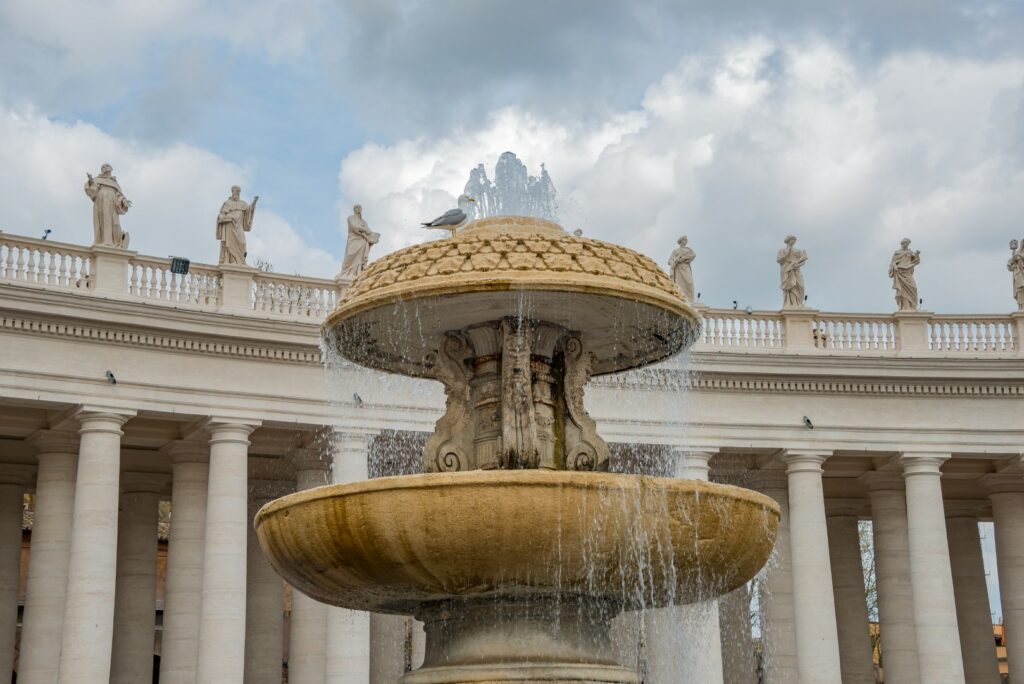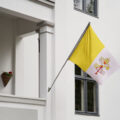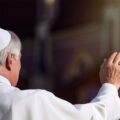What do 21 new cardinal appointees say about the papal vision for the Catholic Church?
What do 21 new cardinal appointees say about the papal vision for the Catholic Church?
Recently, Pope Francis announced the appointment of 21 new cardinals. What does it mean for the Catholic Church and European societies?
New cardinal appointees
On the 29th of May 2022, Pope Francis announced the appointment of 21 new cardinals to be created at the end of August. This will be Francis’s eighth consistory, bringing the number of cardinal electors chosen by Francis to 83, compared to the remaining 12 selected by John Paul II and 38 by Benedict XVI.[1] What do these choices say about the papal vision for the Catholic Church? And what significance does it have for Europe? A closer look at the geography and type of engagement of these appointees will help us answer these questions.
The shift away from Europe
The very name of Roman Catholicism suggests that this denomination has been eurocentric for centuries. The papal seat in Rome meant that countries in the vicinity have been traditionally the main seats of Catholic power. Up until today, the Catholic Church in Germany includes the richest dioceses in the world,[2] rivalled closely by the French.[3] While the wealth remains in the broader West, most of the European dioceses systematically shrunk in population size in the last few decades, in contrast to many non-Western counterparts.[4]
Implementing the strategy of the “Church on the Periphery,”[5] Francis embarked on a task to increase the representation of these non-Western dioceses at the cost of traditional cardinal seats in the past. Thus, bishops from countries including Cape Verde, Myanmar, Panama, Tonga, El Salvador, Laos, Mali, Morocco, Brunei, Rwanda, East Timor, Mongolia, Paraguay, and Singapore have been for the first time appointed cardinals.[6] The Europeans were in a small minority also among the 21 new appointees. This shows the visible reorientation of the Catholic Church away from the broader West, including Europe.
The move from Church of Possession to the Church of Mission
Even in the West, the strategy to reshape the balance of power advanced. Within countries such as Italy, less prominent dioceses, like Perugia or Ancona, received their cardinals over the more traditional cardinal seats.[7] Some parts of Europe were especially underrepresented in the cardinal appointments. For example, in Central-Eastern Europe Francis named only one cardinal, Konrad Krajewski, during his whole pontificate.[8]
Other countries, often viewed as Catholic peripheries in Europe, like Luxembourg or Sweden, received a significant boost by having their first native cardinals appointed.[9] Both countries were heavily influenced by Catholic migrants, with Sweden being an example of the sole national Catholic community still growing at a relatively fast pace in the West.[10] But taken in the context of other nominations, it could be viewed as an element of a broader attempt at changing the European Catholic Church from an institution of power and wealth, what has been described as the “Church of Possession,” to a more modest institution focused on its evangelical mission, i.e. the “Church of Mission.”[11] [12]
The shift away from a conservative vision of the Church
Interestingly, while in terms of geography, Pope Francis moves away from the West, many of his appointees are positioned on what is often described as the ‘liberal’[13] or ‘progressive’[14] end of the spectrum, to contrast with more traditionalist, conservative bishops. These appointees are known for their positive stances towards issues such as female ministry, greater LGBTQ+ inclusion, or better understanding for Catholic migration.[15] In the context of this year’s appointments many expressed surprise to see the bishop of San Diego nominated, which has been described as “a powerful message to the American bishops and church” by The America.[16] But that message was as important for the American as for European bishops who expressed opposition towards the developments initiated by the current pope.[17]
A reversal of roles?
What does all of it mean for Europe? On the one hand, it means that, at least from a Catholic perspective, the Catholic Church is moving away from the centuries of Eurocentrism. On the other hand, the progressive appointments indicate that Europe, which tests out a lot of progressive changes such as the German “synodal way”[18] and has significant experience in dealing with migration based communities, may still have relevance for the discussions about the future of the Catholic Church. But for that to happen, the balance of power will have to shift away from the privilege of establishment to a more socially-engaged enterprise. The Catholic Church in Europe will have to find a way to respond to the complexity of its increasingly pluralising social landscape. It will also have to learn to listen to other parts of the world. And while some might have hoped or feared that this might be a temporary change, with over 60% of cardinals-electors selected by Francis this direction is probably here to stay.[19]
Sources
[1] Pope Francis Announces 21 New Cardinals – The New York Times (nytimes.com)
[2] The German Catholic Church Is Richer Than the Vatican (businessinsider.com)
[3] French Catholic church has 700 million euros a year (rfi.fr)
[4] Vatican census shows Catholicism growing everywhere but Europe (religionnews.com)
[5] The Church on the periphery: at sea with maritime workers – Vatican News
[6] Distribution of living Cardinals according to the Pontificate in which they were created (vatican.va)
[7] Distribution of living Cardinals according to the Pontificate in which they were created (vatican.va)
[8] Distribution of living Cardinals according to the Pontificate in which they were created (vatican.va)
[9] Distribution of living Cardinals according to the Pontificate in which they were created (vatican.va)
[10] Katolska kyrkan i Sverige växer snabbt – Nyheter (Ekot) | Sveriges Radio
[11] Gerard Hall & Michael Muonwe, “Towards Integrative Christian Theology and Experience: Missiology, Inculturation & Practical Theology”, in Claire E. Wolfteich & Annemie Dillen (eds.), Catholic Approaches in Practical Theology: International and Interdisciplinary Perspectives, Leuven 2017, 50–51.
[12] Catholicism in Sweden | Svensk Teologisk Kvartalskrift (lu.se)
[13] New British cardinal will cast vote on the next pope | News | The Times
[14] Putting stamp on future, pope names cardinals with tilt towards Asia | Reuters
[15] Pope Francis Announces 21 New Cardinals – The New York Times (nytimes.com)
[16] Pope Francis names 21 new cardinals, including Bishop Robert McElroy of San Diego | America Magazine
[17] Pope Francis Announces 21 New Cardinals – The New York Times (nytimes.com)
[18] The German Synodal Way, Explained | America Magazine
[19] Distribution of living Cardinals according to the Pontificate in which they were created (vatican.va)






